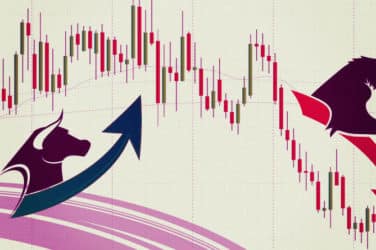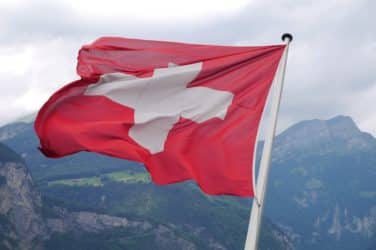- Net revenue up 4 per cent in Q1/2019, to €721 million.
- Adjusted consolidated net profit for the period up 8 per cent year-on-year in Q1/2019.
- Adjusted earnings per share up 10 per cent, to €1.59 for Q1/2019.
Deutsche Börse AG published its results for the first quarter of 2019 on Monday. The company generated net revenue in the amount of €720.8 million, an increase of 4 per cent compared to the previous year (Q1/2018: €691.6 million). As part of this, Deutsche Börse achieved approximately 5 per cent growth of the secular net revenue, in line with its guidance. However, the market environment – and especially the lower level of equity volatility compared to the previous year – had an adverse impact on cyclical net revenue.
This development was only partially compensated – on the one hand, by the higher net interest income from the banking business, and on the other hand, by additional revenue contributions from the companies acquired in 2018. Adjusted operating costs of €248.6 million were slightly lower year-on-year (Q1/2018: €254.5 million). Higher expenditure for growth initiatives, investments in new technologies and regulation, as well as consolidation effects, were more than offset by the accounting transition to IFRS 16. Operating costs were adjusted for non-recurring effects totalling approximately €24.6 million.
These non-recurring effects were mainly due to structural measures aimed at improving operating efficiency within the scope of Deutsche Börse’s growth strategy “Roadmap 2020” as well as to costs for business combinations and acquisitions. Adjusted earnings before interest, taxes, depreciation and amortisation (EBITDA) stood at €475.5 million, up 9 per cent on the previous year (Q1/2018: €438.1 million). Adjusted net profit for the period attributable to Deutsche Börse AG shareholders (hereinafter referred to as “net profit”) thus rose by 8 per cent, to €291.9 million (Q1/2018: €270.7 million). Basic earnings per share, adjusted for non-recurring effects, rose by 10 per cent and amounted to €1.59 (Q1/2018: €1.45).
Gregor Pottmeyer, CFO of Deutsche Börse AG, said: “In a weak equity market environment during the first quarter of 2019, Deutsche Börse was able to draw upon strengths such as the planned growth of structural net revenue by 5 per cent and its diversified business model. Hence, earnings growth in the first quarter is in-line with the guidance for the full year.”
Results for Q1/2019
Net revenue for the first quarter of 2019 increased compared to the same quarter of the previous year, by 4 per cent to €720.8 million (Q1/2018: €691.6 million). With the exception of Xetra (cash equities), all of the Group’s segments reported positive growth. EEX (commodities) reported particularly strong growth, which – in addition to the secular growth – can be attributed to a higher level of price volatility in the energy markets.
Clearstream (post-trading) has also contributed significantly to net revenue growth. Net interest income from the banking business was the main growth driver, rising markedly on a Group level, to €62.0 million (Q1/2018: €40.9 million). This increase can essentially be attributed to higher interest rates in the US.
At €273.2 million, operating costs were slightly down year-on-year (Q1/2018: €275.0 million). Higher expenditure for investments in growth initiatives, new technologies and regulation, as well as consolidation effects, were more than offset by the transition to IFRS 16. Deutsche Börse Group has adjusted the structure of its consolidated income statement starting with the first quarter of 2019 in accordance with IFRS 16. It no longer includes expenditure for certain leases under operating costs but reports it as part of depreciation and in the financial result. In the first quarter of 2018, this would have retrospectively affected operating costs in the amount of approx. €12.5 million. Hereby, depreciation would have increased by approx. €11.8 million and the financial result decreased by approx. €0.7 million.
Non-recurring effects amounted to €24.6 million during the first quarter of 2019 (Q1/2018: €20.5 million), mainly comprising costs for efficiency measures as well as costs for business combinations and acquisitions. Adjusted for these non-recurring effects, operating costs decreased to €248.6 million (Q1/2018: €254.5 million). The result from strategic equity investments amounted to €3.3 million due to the favourable development of individual equity investments (Q1/2018: €1.0 million).
Deutsche Börse Group’s EBITDA was €450.9 million for the quarter under review (Q1/2018: €417.6 million). Excluding the non-recurring effects set out above, consolidated EBITDA amounted to €475.5 million, a 9 per cent increase compared to the previous year’s figure (Q1/2018: €438.1 million).
Depreciation, amortisation and impairment losses rose to €53.1 million (Q1/2018: €41.3 million), mainly due to the effects of the above-mentioned transition to IFRS 16. Adjusted for non-recurring effects, depreciation, amortisation and impairment losses stood at €52.9 million (Q1/2018: €40.8 million).
The Group’s financial result was €–16.9 million (Q1/2018: €–16.3 million). The Group’s effective tax rate was 26.0 per cent (Q1/2018: 27.0 per cent), the decline being mainly a result of internal reorganisations. The company expects a tax rate on the same level for the full year 2019.
Accordingly, net profit stood at €275.2 million (Q1/2018: €249.0 million); excluding the non-recurring effects described above, it was €291.9 million (Q1/2018: €270.7 million). Basic earnings per share amounted to €1.50 (Q1/2018: €1.34). Adjusted for non-recurring effects, basic earnings per share rose by 10 per cent, to €1.59 (Q1/ 2018: €1.45).
Source: Deutsche Börse






